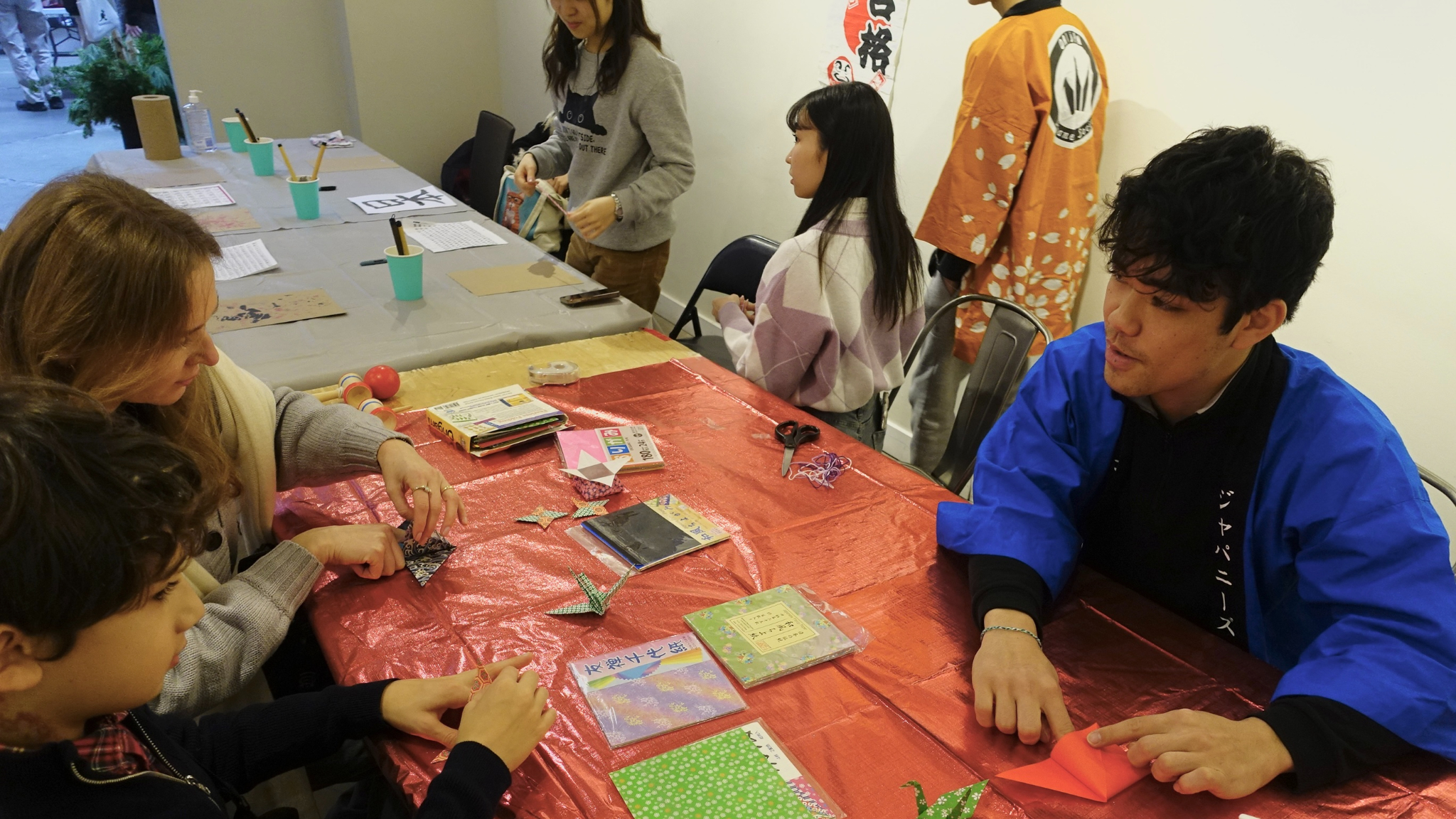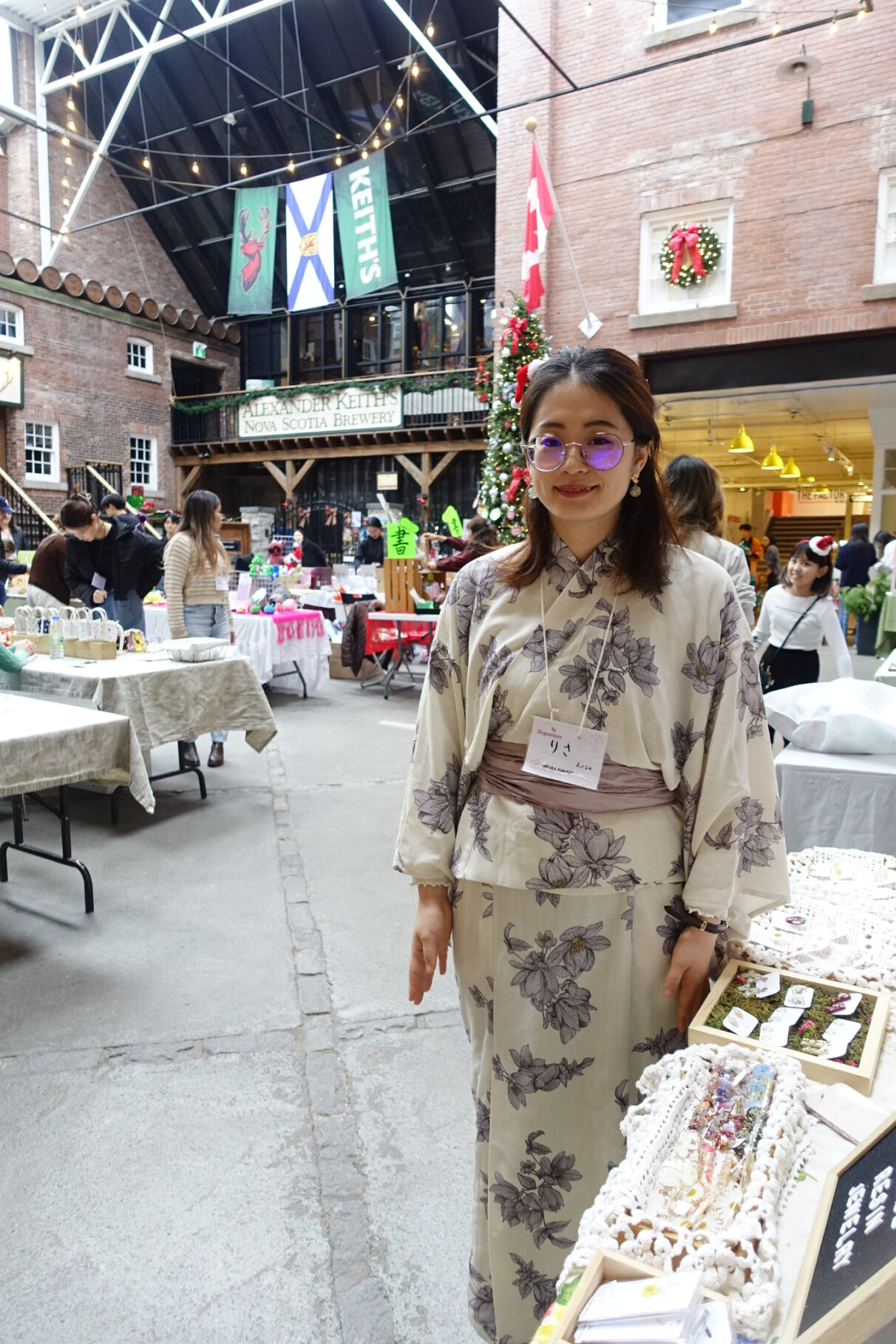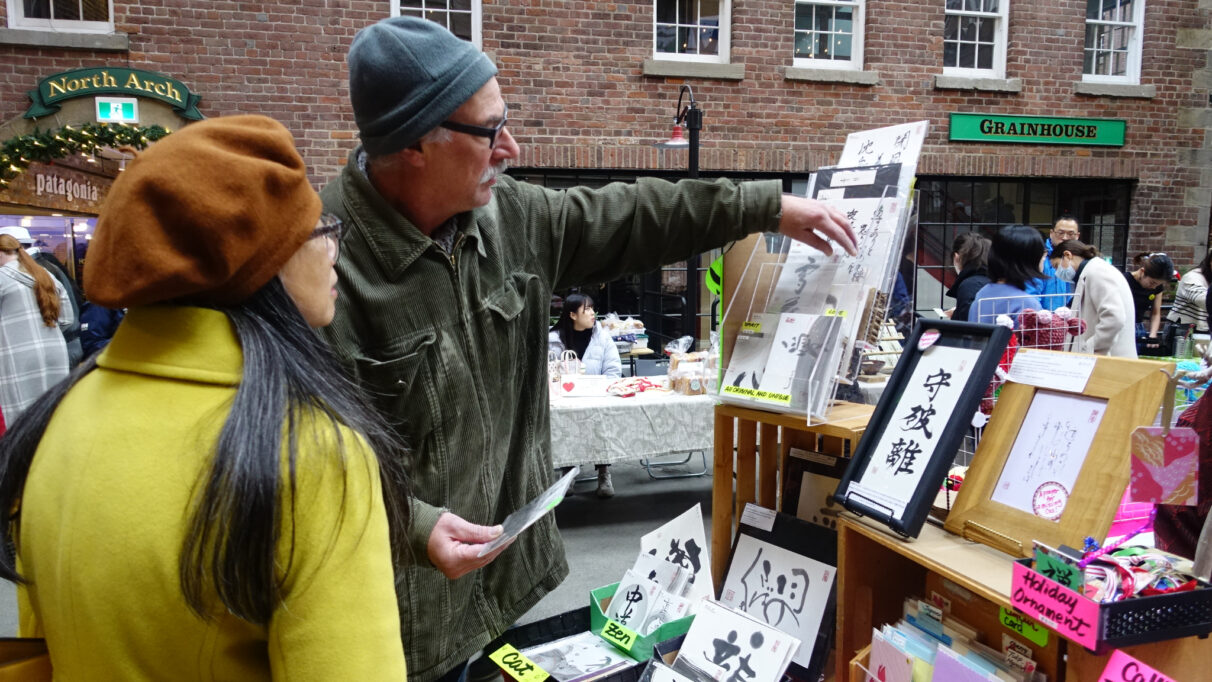Japanese holiday market aims to promote cultural diversity, help local business
Organizers say it’s important to make the Japanese community visible

caption
Japanese Society at Dalhousie University regularly hosts events to teach people Japanese caligraphy and origami artHayley Schofield started learning Japanese language last year but didn’t realize there’s a Japanese community in Halifax until she saw a Facebook post about the Japanese Holiday Market.
“It’s a very pleasant surprise and discovery,” said Schofield, who was at the market on Saturday. “I’m very happy to see this here.”
The holiday edition of Sakura Market opened its doors in the upper courtyard of the Halifax Brewery Market on Sunday, attracting 20 vendors and hundreds of visitors.
Craftspeople dressed in traditional Japanese clothing were selling handmade jewelry. An amateur Japanese calligrapher was selling postcards with Kanji characters printed on them. Homemade dorayaki, a Japanese sweet, were also offered for sale. Related stories
The student Japanese Society at Dalhousie University also made its presence, leading visitors through an origami experience, a traditional Japanese paper folding art. A few Japanese exchange students from Saint Mary’s University offered visitors free origami keychains that symbolized peace.

caption
Lisa Arakawa worn a traditional Japanese dress called yukata at the market. She said she usually wears this on festival occasions.The market made its debut in September with a grant from the Dalhousie International Student Association and volunteer support from Halifax’s Japanese community. The holiday market itself was funded by the National Association of Japanese Canadians.
One of the organizers, Fuki Asai, said in a Zoom interview they hope the market will raise people’s awareness of Japanese culture and community in Halifax.
While Halifax has seen growing Asian immigration in recent years, Japanese citizens make up only a small portion. The 2021 census data shows the racialized group of Japanese in Nova Scotia was 985.
“The market can help other communities know that (even though) they don’t see us usually, but we are living here,” said Asai.
Asai said the market also gives Japanese people in Halifax a chance to taste their home food.
“It’s hard to get authentic Japanese food here and it takes a lot of time to get back there (to Japan),” said Asai.
Ryo Tomita’s family had similar feelings. He and his wife took their young daughter to the Sakura market and encouraged her to try the origami art, which the little girl hadn’t experienced when they were in Japan.
“As a newcomer with little English, the market made us feel connected to home,” said Tomita.

caption
Japanese calligraphy is an art form with a history of importing Chinese characters into the writing system.Kikuno Shimpo, another organizer of the Sakura Market, said they also hope to provide a platform for local small businesses.
One vendor, Oni Uma Ramen made its debut in Halifax at the market. After the Japanese restaurant where Ashley MacKinnon had worked closed, she and her kitchen team couldn’t let go of their love and passion for ramen. They continued handmaking the noodles and running their own brand by participating in the fair and partnering with other businesses.
“As young people, we don’t have much money, so we have to do it in creative ways that people could enjoy it,” said MacKinnon.
The ramen team sold the ingredients for one ramen serving in a box as a kit, offering a variety of flavours including miso and BBQ pork. Patrons had the option of purchasing an eco-friendly shopping bag printed with the Oni Uma brand logo.
MacKinnon says her team sold 100 of these kits in less than half an hour.
She said a market fair like this helps make their business known.
“When people come in here, they are looking for a particular type of product,” MacKinnon said, “We own that type of product.”
“A lot of these businesses are quite small. While they are frequented by people who know the business really well, many people might not never hear of them,” Shimpo said. “But they have a lot to offer, and we’d like to give these businesses an opportunity to share.”
Correction:
About the author

Yuan Wang
Yuan Wang comes from China. She has an interest in international news and non-fiction. She also has a background in documentary production.
